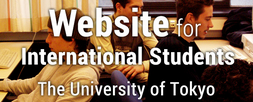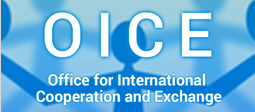
 The educational mission of the Department of Global Agricultural Sciences is to develop human resources with an ability to link academics, policymakers and industrial practitioners. We aim to nurture students who can contribute to the establishment of a peaceful and prosperous society where food production and conservation of the biosphere are achieved simultaneously. In order to accomplish these missions, the faculty at the Department have designed curricula that reflect frontier research in all subdisciplines of agriculture, offering an interactive environment where the staff and students can work together for the advancement of science.
The educational mission of the Department of Global Agricultural Sciences is to develop human resources with an ability to link academics, policymakers and industrial practitioners. We aim to nurture students who can contribute to the establishment of a peaceful and prosperous society where food production and conservation of the biosphere are achieved simultaneously. In order to accomplish these missions, the faculty at the Department have designed curricula that reflect frontier research in all subdisciplines of agriculture, offering an interactive environment where the staff and students can work together for the advancement of science.
In particular, the Department has the following three principles for education and research.
(1) Issue orientation
We recognize that a deep understanding of agricultural issues around the world is an important part of academic research, and therefore place an emphasis on on-field activities. Through basic and applied sciences both, we foster students' capacity to identify and define the issue, capture the underlying cause of the issue, and solve the issue.
(2) Transdisciplinarity
Rather than being confined to a single discipline, we encourage students to acquire techniques which allow thme to integrate tools and findings from various fields of research. While offering world-class training in each student's specialty area, we actively encourage students to acquire knowledge and skills in subdisciplines that are complementary to their major so that they can be employable, for example, as competent project leaders who can moderate multidisciplinary discussions.
(3) Global scope
As an academic leader in the Asia Pacific region, we conduct research fostering international cooperation and development. Moreover, we choose issues of global importance as our research topics and offer concrete solutions to them. Rather than focusing on site-specific knowledge, we teach skills from a broad spectrum of disciplines that are applicable worldwide.





